Golpea Tu Cerebro is no fluffy retrospective of Spanish electronics. This is jagged music, unpolished and bare emotion. An audio assault of crude works, the collection, and its 50 page booklet, is a hoarse scream of protest, a trembling shriek against near four decades of censorship and close-mindedness.
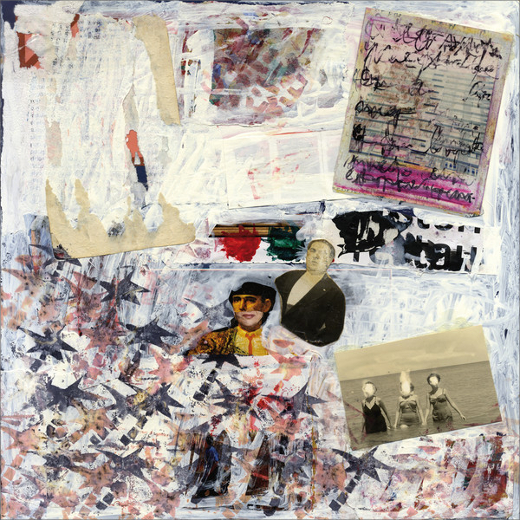
It’s a curious occurrence how retrospective the world of electronics has become. A decade ago the central thrust was to produce something new, to push the contemporary boundaries with an eye and ear set firmly on the future. Nowadays that has changed. Of course, there is still a rich seam of modern musicians who are exploring the limits of their machines, but alongside this present day push there has been a steady rise, or an unstoppable surge, in the number of reissues. The audio artifacts of electro, house, techno, wave, and all styles in between, have been examined with fine tooth headphones to unearth lost wonders and, sometimes, vinyl and tapes that should have remained buried.
The most interesting aspect of this shift to reissuing has been the discovering, or rediscovering, of artists and labels that were next to unknown in their time, the reviving of scenes and sounds for a new generation. Across continents the late 70s and 80s saw a shift. Daring DIY doodlers armed with nothing more a bargain basement drum machine and an eight track. One guy, a mic and a distortion pedal. Punk acts turning synth. Norms dissolving in technological advance. Nowhere could this be better heard than Europe. Belgium. Germany. Italy. Epicentres of change. And there were others.
In 1975 Spain ended thirty six years of military rule, General Francisco Franco had died. Waiting in the wings to continue El Caudillo’s rule of Catholic conservatism, close minded bureaucracy and crushing isolation was Prince Juan Carlos de Borbón. Schooled by the dictator, the young prince was set with the task of maintaining traditionalist values. This Juan Carlos succeeded his mentor, and succeeded some more. Spanish society was opened. Influences flooded in. Fashion. Food. People. Music. Artists followed this social change, adopting formerly unheard styles. Backroom labels sprang up. Fanzines were founded. Synth wave flowed from Valencia. Industrial streamed out from dead spaces in Madrid. Noise from north, south, east and west. An uprising had begun. This somewhat unknown history has been captured by records and releases in the past, Atemporal, Domestica and Mecanica to name but a few, with a new imprint having just been founded with one of the most ambitious projects of Iberian audio archaeology to date.
Lleida is the home of Insane Muzak, a label born from a love of “DIY, homemade and extremes of the psychedelic sounds of the 60s and 70s.” Boss, Alex Carretero, has years of experience of sifting through tapes and tracks, working at the seminal Guerssen in Catalonia and he is no stranger to this unique tale of electronics in Iberia. “It was a scene where anything was possible, where in spite of a lack of resources imagination was free and youngsters recorded tapes in their bedrooms with amazing results.”
Carretero adds detail to Spain’s musical revolution. “Pirate radios sprung up that were less interested in pop and more willing to take risks. Fanzines appeared, music mags, TV shows like the Golden Age where groups like Psychic TV and Tuxedomoon performed.” Amidst this change came homegrown talent. “Groups like Aviador Dro and its members, some formed Esplendor Geométrico, had a radical sound” as well as the likes of Genesis P.Orridge and Jordi Valls who were pivotal in this iconoclastic change.
Carretero has spent the last four years, through trials and tribulations, to bring this “Golden Age” back to life, to resuscitate a dizzying spread of backroom experiments across two slabs of vinyl: Golpea Tu Cerebro. The compilation gathers together twenty six pieces from “practically all corners of España: Madrid, Barcelona, País Vasco, Galicia, Andalucía and more.” Flicking through the tracklist of this collection will not be much help to most, this is underground with a capital “u”. Many of the musicians on here might have releases one tape in their lifetime, others one track and one track in an age where making a phone call was pretty difficult.
Unrefined, this is music boiled raw. Take the dripping and downright devious “Preparanda para la Guerra” by El Punto de Vista Operativo. The track is a war cry, a savaged and ravaged work of tape hiss and aggressive rewinds drowned in static and seething with rage. Across the 2LP tracks are generally short, bursts of violence and musical menace that attack from the very beginning.
Despite the abundance of obscure names, there are more productive figures on the labour of love. Francisco López has been ridiculously productive since he first cut his “Untitled” offering, producing hundreds of records across the globe. His piece, a work of sizzling drone, is an obvious prototype for his musique concrete style he continues to pursue today.
Comando Bruno is another name that has continued their explorations into noise since the 1980s. Here the Spanish produced offers the curt and haunting resonance of “Los Descuidos de Marsha,” a work of drunken delay and echoing torture that literally sent my cat scurrying off my lap to find safety. Felix Menkar is an artist some might recognise, having recently appeared on Contort Yourself’s excellent 80s Underground Cassette Culture Volume 1. Here Menker mirrors Bruno’s style. Resonance buries into skulls in a terrifying piece that is something tantamount to aural waterboarding. Septiembre Negro continues this theme, using a fundamental of life to straggle and demand submission. The watery gargling of “Inscripcion de las escrituras” is chilling. Samples groan and howl in a syrup of misery, moans of agony choked in static.
Islands of respite are few and far between on this compilation of stained hardship. Tecnica Material offer an olive branch, well of sorts. A harsh industrial beat, some modicum of structure, is used to thrash the pleadings of its victim. Polidrico’s “Sin Titulo” is arguably the least cruel offering of the album. Loops feedback into themselves, a stuttering machine of bleep and blurred noise being the product.
Golpea Tu Cerebro is no fluffy retrospective of Spanish electronics. This is jagged music, unpolished and bare emotion. An audio assault of crude works, the collection, and its 50 page booklet, is a hoarse scream of protest, a trembling shriek against near four decades of censorship and close-mindedness. The music of this double album is not easy listening, it’s the opposite. Yet, this congealed rage has a palpable honesty. These artists took a spool of magnetic tape to the throat of tradition, choking all life out to leave guitars split and broken and flamenco in a bloody pulp. This is no easy album, this is historic commentary; the unleashed noise of a once gagged and muffled generation.
Golpea Tu Cerebro is available on Insane Muzak. [Purchase site]






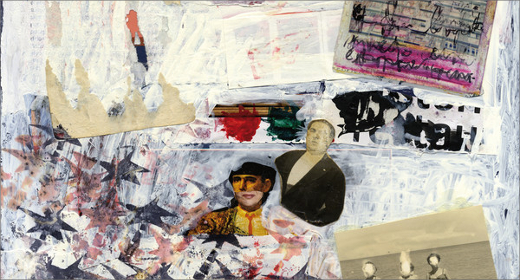



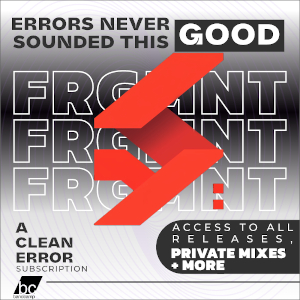
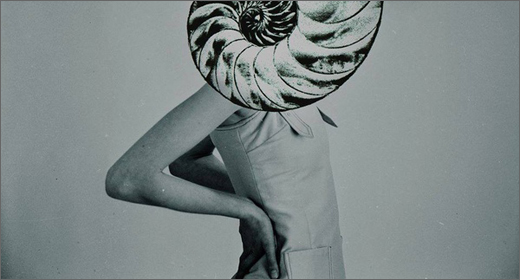
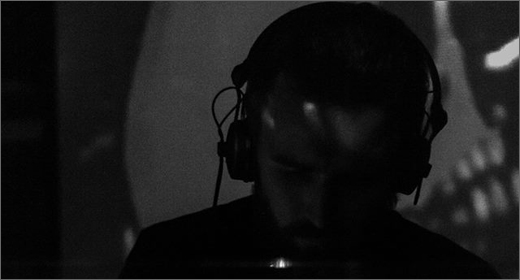
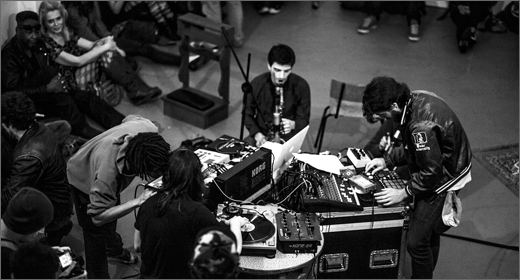

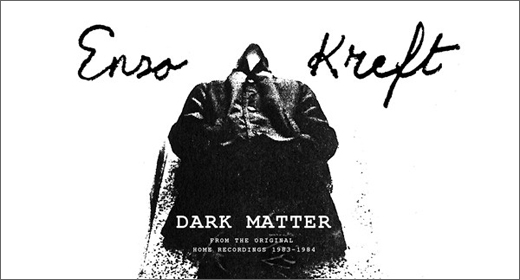



![Luke’s Anger :: Ceiling Walker EP (Love Love) — [concise]](https://igloomag.com/wp/wp-content/uploads/2025/04/lukes-anger-ceiling-walker-vinyl_feat-75x75.jpg)

![Ndorfik & madebyitself :: Solos EP (People Can Listen) — [concise]](https://igloomag.com/wp/wp-content/uploads/2025/04/ndorfik-madebyitself-solos_feat-75x75.jpg)





